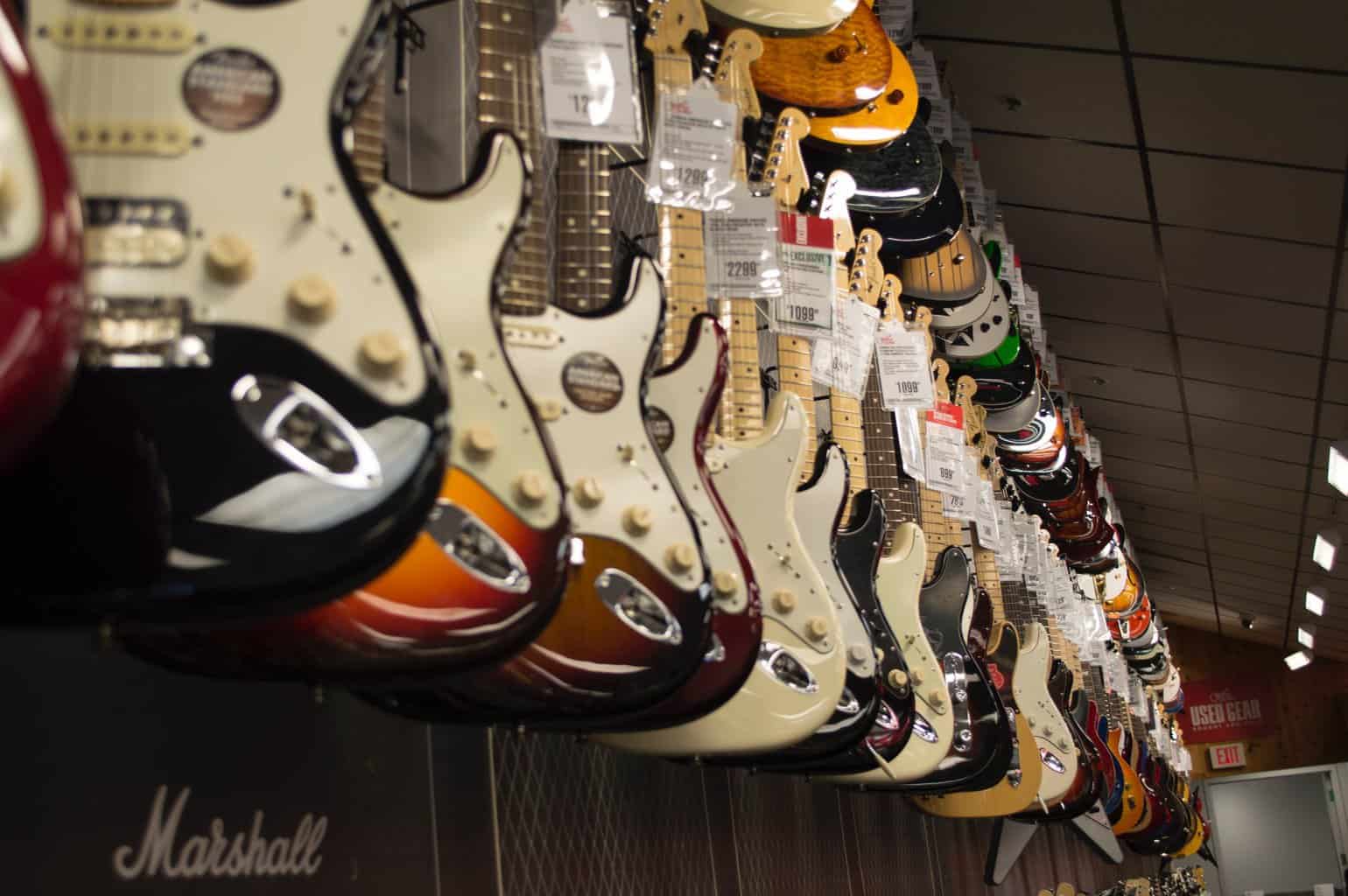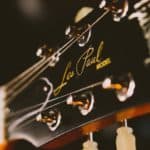It is never enough for guitarists.
More strings, more picks, more pedals, more techniques, more chords, more everything!
Yes, that includes more guitars.
It is funny to think how one beginner struggles so much to earn enough money to get his first used guitar. Next thing you know, he has three or four!
Of course, this is not the same for every musician, but I bet that if you ask any guitarists if they’d like to have more guitars, their answer would be a solid yes.
This leads us to a question: Why do guitarists tend to have so many guitars?
Guitarists prefer to have a wide variety of guitars mainly because of sound and feel. In other words, not every guitar sounds the same, neither they play alike.
Professional guitarists also have other guitars as a replacement, or because they are required for playing specific songs.
Let’s continue talking about this obsession with six-string instruments.
A warning: you could end up being a guitar fanatic too.
Not all guitars sound the same
Guitars are like snowflakes. They are unique in their way.
You might believe this is a cheesy statement (and in part, it is), but guitar lovers understand it and take it as a fact.
See, even if you have two guitars of the same model, the wood used for their construction comes from different trees.
Seems strange, but such a tiny detail affects the final sound.
More obvious is the fact that different guitar models have specific and characteristic sounds.
A Gibson SG, for instance, is not equal in sound to a Gibson Les Paul, despite both guitars being of the same brand.
Diversity is an important feature, that’s why many guitarists enjoy playing and experimenting with new sounds.
Not all guitars play the same
Guitar structure may pass unnoticed for non-players. However, the importance of their role cannot be denied.
After all, how you play is as relevant as what you play.
That is to say, guitar structure affects the how.
So, if a guitar is too big, then it will affect the players’ posture, which in the end, affects performance and how it sounds.
The neck shape is also involved in the playing. Some necks are easier to play with, for example.
Now, let’s not forget those instruments that instead of the standard 6 strings they have a set of 7, 8, or even 12.
Talking about string, their setting also changes playability.
For example, guitars with high string action are perfect for slides.
It is not uncommon to think about players that use one guitar for a technique and another for a different one.
Not all guitars look the same
We were born with five senses for a reason.
If musicians choose guitars because of sound and because of touch, why not select them because of the sight, too?
Just walk by through the window of a music store. Pay attention to the colors and the shapes. Guitars are gorgeous!
Some guitarists pick guitars based on looks, and that is not a sin.
Different finishes, different bodies. Some with stickers on them, some others with bright paintings.
Diversity is beautiful and fun.
Diversity indeed leads us to the following idea…
Many players are also collectors
As kids, we loved collecting toys and Pokémon cards.
Life changes as we grow old, but adults keep the same hobbies, collecting CDs, vinyl, beer cans, and (more) Pokémon cards.
It is no surprise, then, to find musicians collecting guitars.
What might come as a surprise, though, is the idea that some people barely play with those guitars… if they play them at all!
This is not a crime either. To have a room full of guitars is a mouth-watering thought.
If someone has the money and space to make that dream come true, then they also have freedom.
All in all, collecting guitars is an expensive hobby.
Still, if you have the money to afford it, then do it with all your might.
You might need to have backup guitars
It is safe to say that nothing is safe during live performances.
If a guitar is a tool needed for a proper show, then it is expected to work properly.
Now, this is not a constant, and as I said, lots of things could go wrong.
Strings may break, or batteries could dry up.
For that reason, many professional guitarists prefer having replacement guitars.
Those “plan B” guitars are helpful for studio recordings as well because the same problems could arise.
Some guitars are just too expensive to be taken out
We give a lot of value to our personal belongings. So much, that sometimes the idea of losing one of them is a living hell.
If you think I’m exaggerating, ask this to a guitarist who has spent thousands of dollars on a very rare guitar.
It is understandable, then, that some people think twice before leaving home with such an expensive guitar in their cases.
Therefore, it is a wise idea to have other guitars that are solely used for outside gigs and rehearsals.
They are similar to a backup guitar: they are there for a “replacement.”
They are the ones that could get damaged or be stolen without resulting in a significant loss.
Should you have more than one guitar?
You might have read the full article and still wonder whether to have more guitars or not.
“Am I being too ambitious? Are they a necessity or a luxury? Shouldn’t I spend my hard-earned money on other things? ”
The short answer is, you should buy all the guitars that you want.
If you have the money, then it is okay.
Despite what I said about aesthetics and collection, a wide range of instruments expands your creative capacities.
Why? Because specific guitars provide specific sounds.
As a result, specific sounds create special songs.
Why wouldn’t you want to broaden and enrich your music?
With just two guitars, possibilities are endless.
Lastly, I would like you to remember that “more” doesn’t necessarily mean “better”.
If you are going to start a guitar collection, always do it consciously, expecting nothing but pure enjoyment.

Hello there, my name is Ramiro and I’ve been playing guitar for almost 20 years. I’m obsessed with everything gear-related and I thought it might be worth sharing it. From guitars, pedals, amps, and synths to studio gear and production tips, I hope you find what I post here useful, and I’ll try my best to keep it entertaining also.





